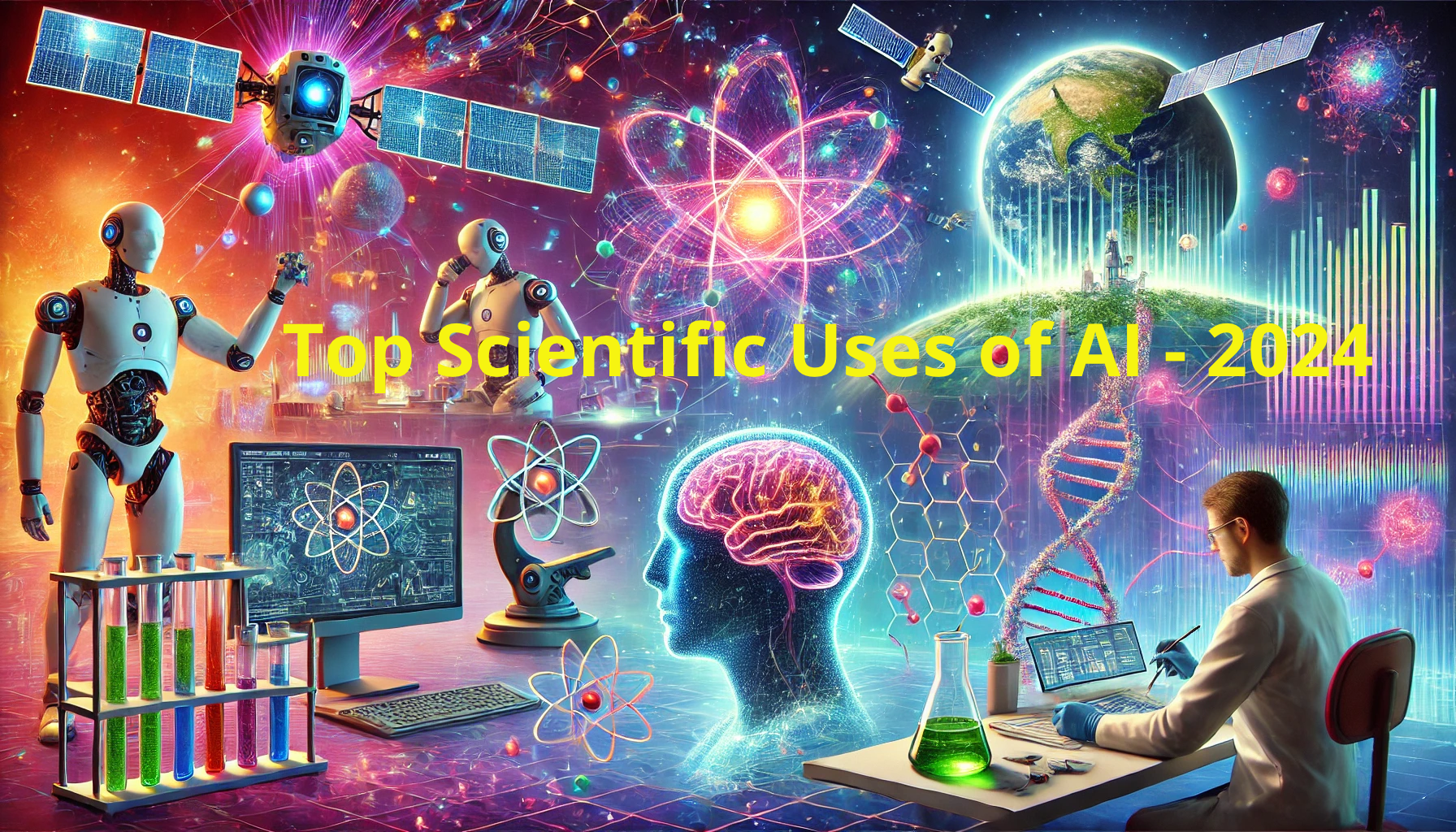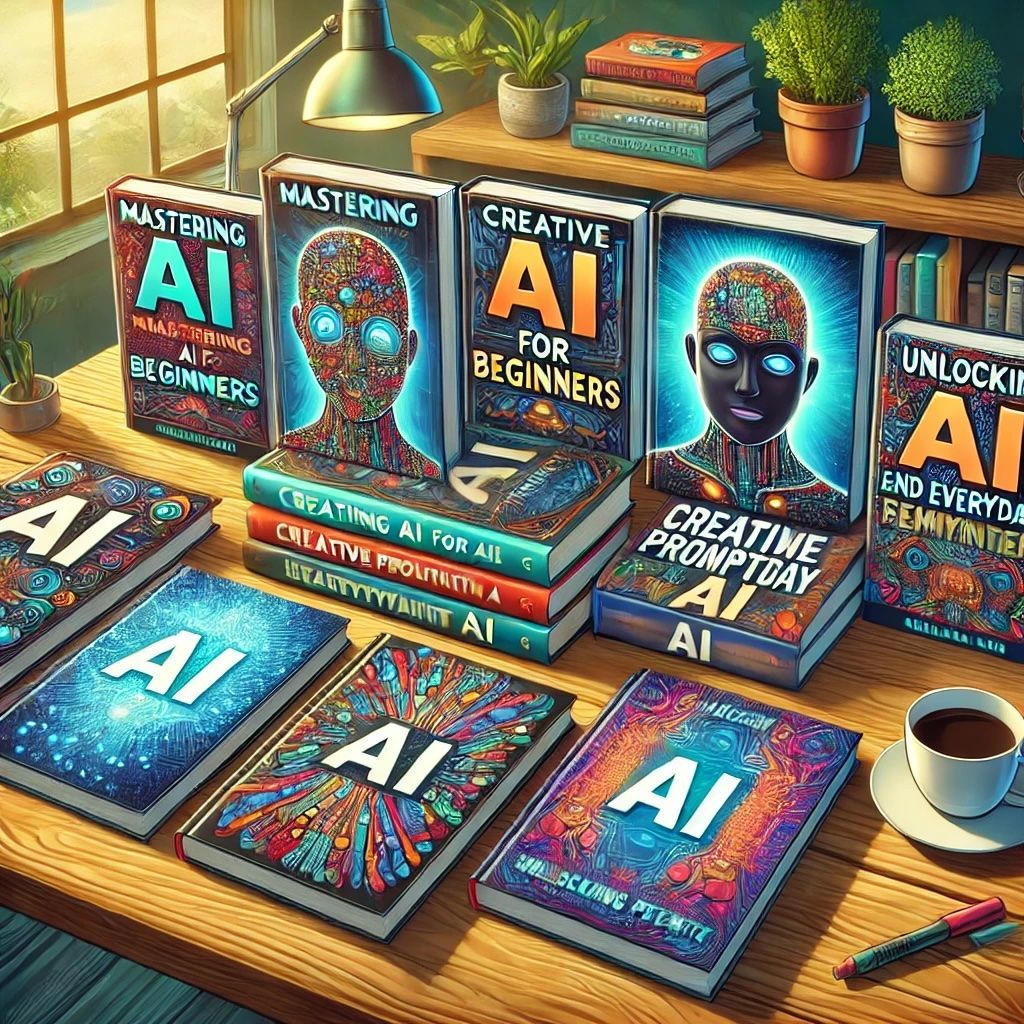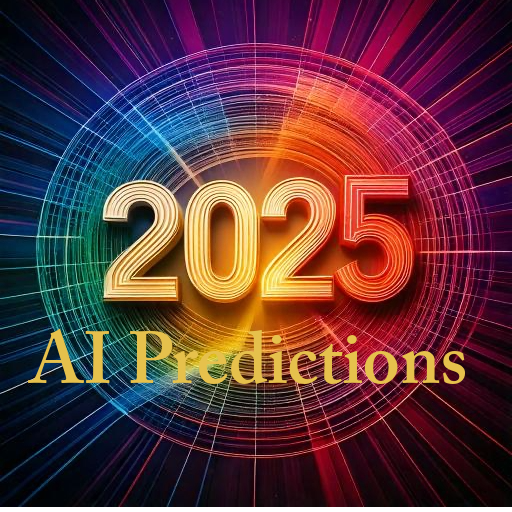Top Scientific Uses of AI - 2024
A Quick Summary of Key Scientific Uses of AI in 2024

Oh what a year AI had in 2024. Here are some positives – 5 of the top scientific uses. AI’s ability to process and analyze massive datasets at unprecedented speeds is revolutionizing science, making discoveries more efficient and impactful.
1. Drug Discovery and Healthcare Research
Drug Discovery: AI models predict protein structures, accelerating drug design.
Personalized Medicine: AI analyzes genetic data to create patient-specific treatment plans.
Medical Imaging: AI enhances accuracy in detecting diseases like cancer, from MRI, CT, and X-ray scans.
Impact: Reduces the time and cost of bringing new drugs to market and improves diagnostic precision.
2. Climate Science and Environmental Research
Weather Prediction: AI improves the accuracy of forecasts and early warning systems for extreme weather events.
Climate Modeling: AI analyzes large datasets to refine climate change models and predict environmental impacts.
Wildlife Conservation: AI identifies species, using camera traps and monitors biodiversity using satellite imagery.
Impact: Helps mitigate climate change effects and supports sustainable development efforts.
3. Astronomy and Space Exploration
Exoplanet Discovery: AI sifts through astronomical data to identify exoplanets from light curves.
Space Mission Optimization: AI aids in planning and navigating space missions, such as rover paths on Mars
Galaxy Classification: AI automates the analysis of large-scale galaxy surveys.
Impact: Speeds up exploration and deepens our understanding of the universe.
4. Genomics and Biological Research
Genome Sequencing: AI identifies patterns in genetic data for disease research and agricultural improvements.
Synthetic Biology: AI designs DNA sequences for creating synthetic organisms with specific traits.
CRISPR Optimization: AI enhances the precision and efficiency of gene-editing tools.
Impact: Advances biotechnology, agriculture, and personalized healthcare.
5. Physics and Materials Science
Particle Physics: AI processes data from particle accelerators like CERN to detect rare events.
Materials Discovery: AI predicts properties of new materials for energy storage, electronics, and more.
Quantum Computing: AI helps optimize quantum algorithms and hardware.
Impact: Accelerates the discovery of materials and phenomena with real-world applications.
Honorable Mentions
Social Sciences: AI analyzes trends in human behavior, public health, and economics.
Archaeology: AI identifies hidden structures from satellite images and analyzes artifacts.
Agriculture: AI monitors crop health, optimizes irrigation, and predicts yields.
One of my favorite happy stories is the AI use to evaluate the vocalizations of whales. Researchers have identified patterns that might be “words” in whale communication. By training AI models on specific ocean sounds, patterns are discovered that may lead scientists to understand what and how whales, and ultimately other animals, communicate.


My company uses artificial intelligence in a transparent and honest manner. We support the use of AI in business with the use criteria including being socially beneficial, explainable, fair, and secure. We integrate AI tools into our business processes to enhance efficiency and decision-making and to improve quality.



